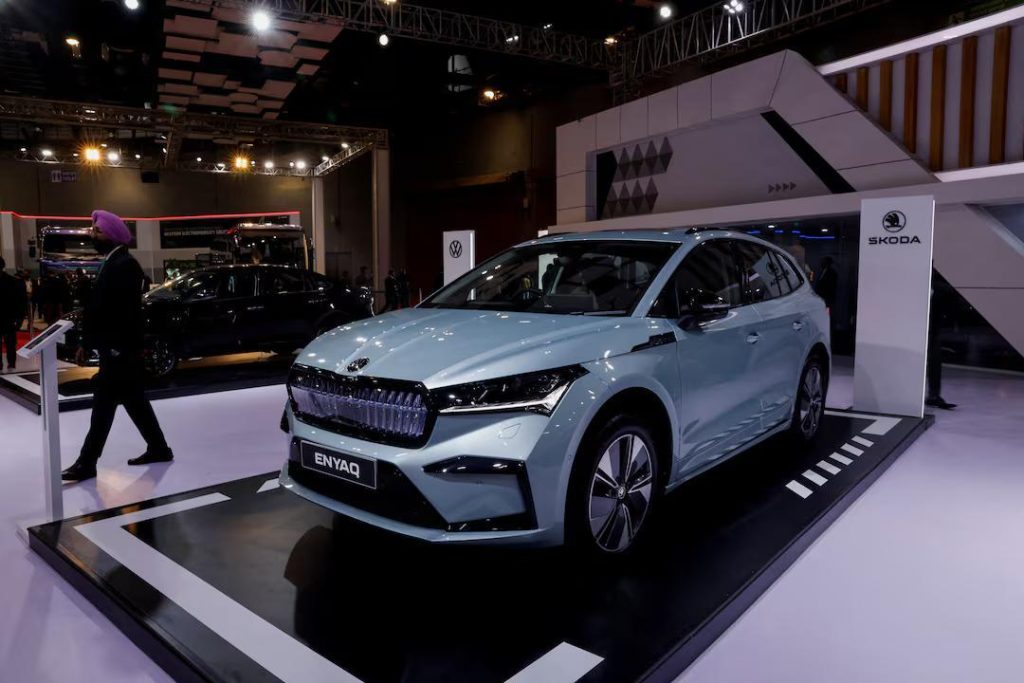
Skoda to Invest in EVs Manufacturing in India Despite Tax Dispute
In a bold move, Skoda Auto CEO Klaus Zellmer has announced plans to manufacture electric vehicles (EVs) in India, with or without a local partner. This decision comes despite the company facing a significant tax dispute in the country, which could rise to a staggering ₹24,346 crore (approximately $3.25 billion) if penalties are imposed.
Skoda’s move to invest in EVs manufacturing in India is a significant development in the country’s automotive industry. India has set ambitious targets to transition to cleaner fuels, and the government has implemented policies to encourage the adoption of electric vehicles. As a result, many international automakers are eyeing the Indian market as a key growth hub.
Skoda’s plans to manufacture EVs in India are part of the company’s broader strategy to expand its presence in the country. The company has been present in India since 2001 and has been working towards increasing its market share in the country. In 2020, Skoda acquired a majority stake in its Indian partner, Volkswagen Group, to strengthen its position in the market.
The tax dispute, which is currently valued at ₹12,173 crore (approximately $1.65 billion), was triggered by the Indian government’s decision to withdraw a tax benefit for foreign companies operating in the country. Skoda, along with other international automakers, had availed of this benefit to reduce their tax liability in India. However, the Indian government withdrew the benefit in 2018, leaving the companies facing a significant tax bill.
Skoda is seeking a joint venture with a local partner to share the risks and costs associated with EVs manufacturing in India. However, the company has also indicated that it will proceed with the project independently if necessary. This flexibility is likely to be attractive to potential partners, who may be hesitant to join a project with such a significant tax overhang.
India is emerging as a key growth hub for Skoda, and the company is targeting the country as a major market for its EVs. The Indian government has announced plans to phase out internal combustion engines in the country by 2040, making it an attractive market for electric vehicles. Skoda’s decision to invest in EVs manufacturing in India is likely to be driven by the company’s desire to capitalize on this growth opportunity.
Skoda’s plans to invest in EVs manufacturing in India are also likely to be influenced by the company’s broader strategy to reduce its dependence on the European market. The European automotive market has been experiencing significant challenges in recent years, including declining sales and increasing regulatory pressure. By investing in India, Skoda is likely seeking to diversify its revenue streams and reduce its exposure to the European market.
In conclusion, Skoda’s decision to invest in EVs manufacturing in India despite a significant tax dispute is a bold move that reflects the company’s commitment to expanding its presence in the country. The Indian government’s plans to transition to cleaner fuels and phase out internal combustion engines make it an attractive market for electric vehicles, and Skoda is well-positioned to capitalize on this growth opportunity.
Source:






